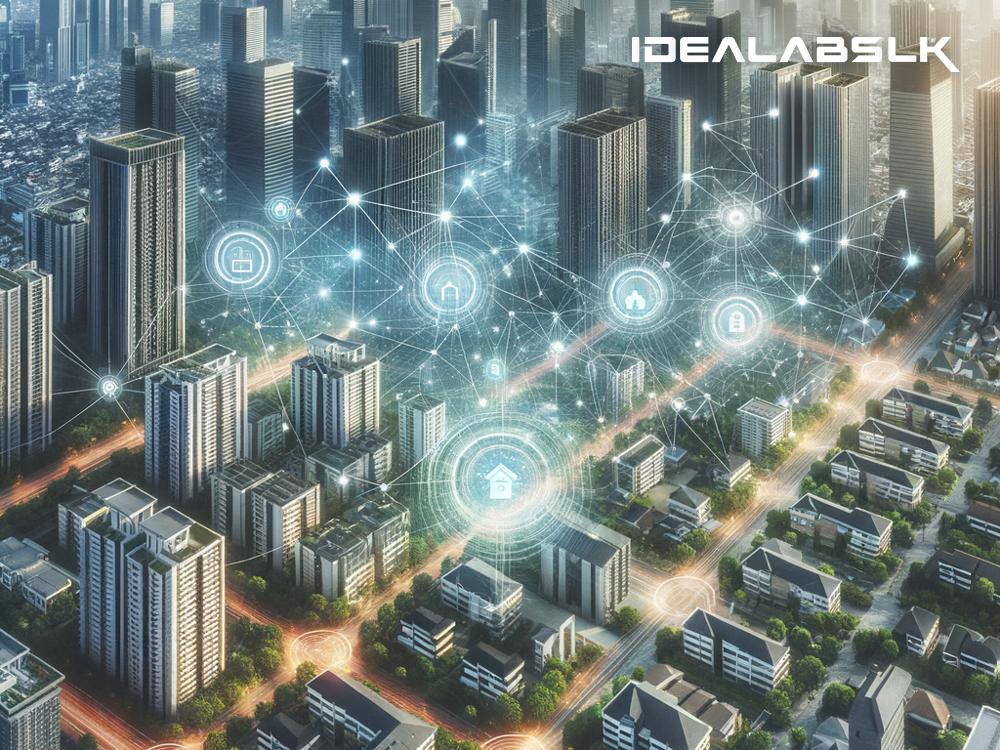Blockchain in Property Deal Validation: Simplifying Real Estate for Everyone
The real estate world can feel like a complex maze, especially when it comes to ensuring that property deals are legitimate and secure. However, an innovative technology has been making waves, promising to simplify and fortify this process: Blockchain. At its heart, blockchain ushers in a level of transparency, security, and efficiency previously unseen in property deals. But what does this really mean for buyers, sellers, and the industry at large?
Understanding Blockchain in Simple Terms
Imagine having a magic notebook that everyone can write in, but no one can erase or modify what's been written. Blockchain works somewhat similarly. It's like a digital ledger where every transaction is recorded, verified by a network of computers, and then added as a new "block" to a chain of previous transactions. What makes it special is its decentralization and encryption, ensuring that once a transaction is added, it's practically impossible to alter or delete. This ensures a level of transparency and security that is ironclad by design.
Blockchain and Property Deals: A Revolutionary Pair
In the traditional property buying process, there are many steps and parties involved, from real estate agents to legal advisors, which can make transactions slow and expensive. Here’s where blockchain shines, offering a panorama of benefits:
-
Transparency: Blockchain's public ledger allows all parties involved in a transaction to see the history of a property, from past transactions to current claims, in real time. This visibility can drastically reduce fraud and misinterpretation.
-
Efficiency: By digitizing the process, blockchain can significantly speed up transactions. What once took weeks or months might now take just days or even hours, thanks to the elimination of middlemen and paperwork.
-
Security: The decentralized and encrypted nature of blockchain makes it incredibly secure. It’s virtually impossible for the system to be hacked, ensuring that property records and transactions are safe.
-
Reduced Costs: With fewer intermediaries and streamlined processes, the costs associated with real estate transactions, from commissions to legal fees, can be significantly lowered.
Real-World Applications: Blockchain Making Its Mark
Several companies and countries are already exploring how blockchain can revolutionize real estate. For example:
-
Smart Contracts: These are self-executing contracts with the terms directly written into code. In real estate, smart contracts could automatically transfer property ownership once certain conditions are met, without the need for traditional intermediaries.
-
Tokenization: This involves turning real estate assets into digital tokens on the blockchain. It could dramatically lower the barriers to real estate investment, making it possible for more people to buy fractions of properties.
-
Land Registries: Some governments are looking into blockchain to manage their land registries, aiming to make the process of buying and selling land more efficient and less susceptible to fraud.
Challenges and Considerations
While blockchain holds tremendous potential, there are hurdles to overcome. Regulatory frameworks need to evolve to accommodate and govern the use of blockchain in real estate. Additionally, there’s the need for widespread adoption and trust in this technology by all parties involved in property transactions.
Looking Ahead: A Blockchain-Enabled Future
The future of blockchain in property deal validation is promising. As technology evolves and becomes more integrated into our daily lives, its potential to streamline, secure, and democratize real estate transactions is immense. Imagine a world where buying a home is as simple and secure as making an online purchase. That’s the future blockchain is paving the way for.
In Conclusion
Blockchain technology presents a groundbreaking opportunity to transform the real estate market, making transactions more transparent, secure, and efficient. By addressing traditional pain points such as fraud, inefficiency, and high costs, blockchain can significantly improve the property buying and selling process. While challenges remain, the ongoing advancements in blockchain technology and its growing acceptance suggest a bright future for its application in real estate. For buyers, sellers, and the industry at large, embracing blockchain could mean stepping into a new era of property deals — one marked by unparalleled simplicity and security.

